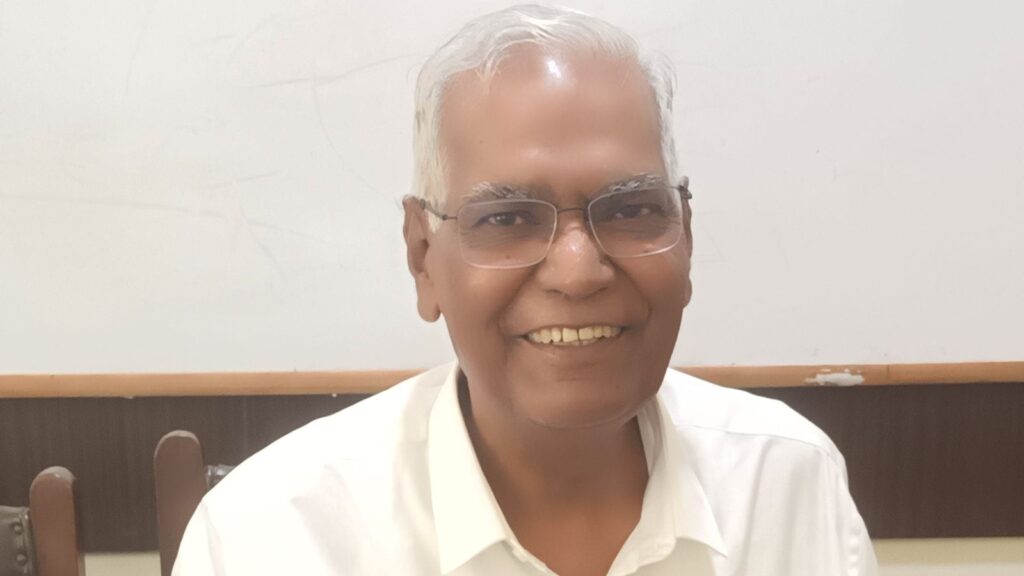ChandigarhSeptember 27, 2025 09:08 AM IST
First published on: Sep 27, 2025 at 08:42 AM IST
Senior Communist leader D Raja was re-elected as General Secretary of the CPI at the 25th CPI Party Congress — a national conclave held once every three years — which concluded in Chandigarh on Thursday. In an interview with The Indian Express, D Raja discusses the current state of the INDIA bloc, CPI’s role in strengthening it, the country’s political future, and the relevance of Marxism in contemporary India. Excerpts:
How do you rate Rahul Gandhi as Leader of the Opposition?
Rahul Gandhi is emerging as an effective politician. Recently, he convened an all-party meeting where we discussed instances of vote fraud. He citing examples from Maharashtra and several other states. He is now demonstrating political maturity, taking up sensitive issues and directly challenging the BJP and the Prime Minister.
Do you think Rahul Gandhi can lead the INDIA bloc and the Opposition parties nationally?
He is one of the prominent leaders of the INDIA bloc. Organisationally, we have formed a committee chaired by Mallikarjun Kharge. At present, he is quite active as Leader of the Opposition and taking up key issues.
Why has the Opposition struggled to become a formidable united force?
I wouldn’t say it has not been successful, but there have been challenges. Seat-sharing during elections is a major issue. There must be mutual trust and accommodation among parties contesting under the INDIA bloc. Unfortunately, this hasn’t materialised in states like Haryana, Delhi, and Maharashtra. Seat-sharing is a serious concern. The secular and democratic parties that have come together must recognize this. But we cannot write them off as weak. That’s precisely why the BJP is rattled — and Prime Minister Narendra Modi is rattled. He refuses to call it the INDIA bloc, referring to it only as “INDI.” It shows how rattled they are.
How does the CPI plan to strengthen the INDIA bloc?
The CPI has been part of the INDIA bloc since its inception. I attended the first meeting in Patna, where we declared a common resolve: “Defeat BJP, save the nation.” We’ve been working to strengthen unity and clarify the bloc’s agenda. We’ve consistently emphasised that issues affecting people’s livelihoods — employment, healthcare, housing — must be prioritised.
CPI was once a prominent political force in Punjab. What led to its decline, and how do you plan to revive it?
The CPI is in the process of revival. Electoral setbacks occurred due to disunity among progressive and secular forces, and manipulative tactics employed by the BJP and other parties. We have recognised the need for a strong CPI, and we are rebuilding.
Has CPI or the Left’s support base shifted to AAP?
Initially, we had a good relationship with AAP — even in Delhi, we participated in joint movements and campaigns. But that doesn’t mean our base has shifted. However, it’s true that AAP has targeted CPI’s support base to expand its own.
Politically and economically, in which direction is the country heading?
The BJP-led government has proven disastrous for the country. That’s why we say: if the Constitution is to be saved, democracy must be protected, and the ideas of social justice and federalism preserved — then the BJP must be removed from power. Otherwise, as everybody fear, India could slip into a fascist regime. That must not happen.
What do you foresee for India’s position in international affairs?
India continues to hold a place in global politics. But since the BJP came to power, it has undermined India’s traditional foreign policy, which was built on national consensus. For example, in the Israel-Palestine conflict, India should have taken a strong stance against Israel’s actions — but it didn’t.
What does Marxism mean in today’s India?
Marxism should be applied according to Indian conditions. The fundamental problems of India — class division, caste hierarchy, patriarchy — need to be addressed. While we fight for economic rights, we must also combat caste-based discrimination and social injustice. Gender sensitivity and equality are equally critical. Marxism, in today’s context, is about resisting all forms of exploitation and division.


